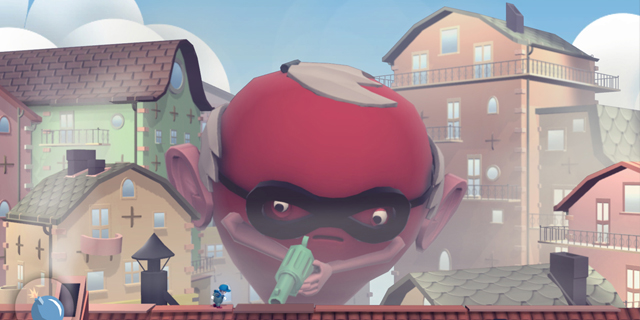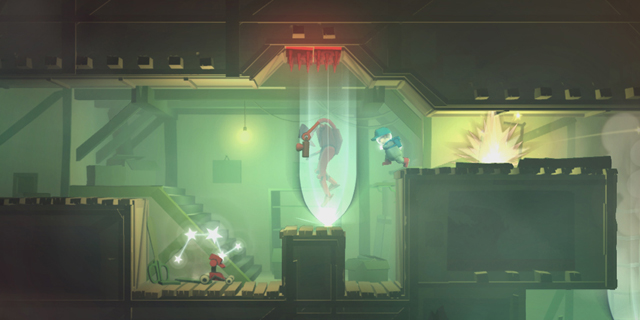
Pid is like dating a beautiful person. It’s pleasing to the eyes, and on the surface it has a lot of things that would interest a person. However, after the honeymoon phase was over, I started to see past this beautiful person and really started to see its flaws. I learned how difficult it could be to have a relationship with them, and that maybe dating them wasn’t as rewarding and all it was cracked up to be. It doesn’t mean I don’t want to be friends, but I just don’t think we work as a couple.
Pid’s star of the story is a young boy named Kurt, who is stranded on a planet after tragically falling asleep on the bus on a regular daily commute. After being welcomed by the robotic and friendly inhabitants of the planet, he sets his sights on wanting to get home. However, after finding and orb early in his adventure, he soon finds himself with the ability to set up beams of lights and manipulate the gravity around him. While this sets up the premise for some interesting game elements, the novelty wears off really quickly.

One thing I found about this game is that it’s deceptively difficult. While the game is generous with its checkpoints, I found that there was no build-up to when a difficult part was about to come up. You would occasionally hit an easy segment and the suddenly get barraged by a hard puzzle, that would seemingly come out of nowhere and kick your butt continually trying to figure it out.
One of the game’s tragic flaws is the one-hit K.O. While it’s a little more forgiving in navigating through the world, it reaches levels of controller slamming during the boss levels. While the game does mention how it plays like platformers back in the ’80s and ’90s, I don’t think they were ever as frustrating as this. The tragic flaw is that these bosses have multiple forms and no checkpoints in between forms. More often than not, you’ll be finding yourself starting over and over again, right from the beginning of these boss battles. Even after claiming victory, it just feels very unrewarding.
The game also has multiple “souvenirs” and hidden constellations you can collect, but they don’t seem to have any sort of effect on gameplay. While they’re good for game completions and achievements or trophies, they just don’t seem worth collecting.
Ultimately, Pid is really hard to recommend to people. There are a lot of interesting elements that work in this game, but they’re overshadowed by some flaws that push the player away. However, if you’re in the market for a difficult platformer, give Pid a shot. Who knows, maybe you’ll find happiness with it where I didn’t.
Pros: Pretty visuals, interesting game mechanics
Cons: Frustrating difficulty spikes, unrewarding



















